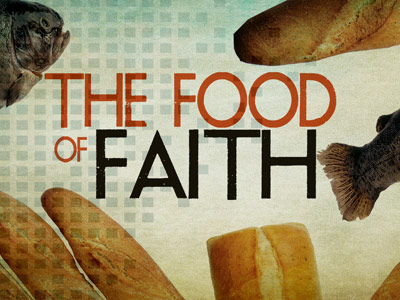-
Jesus Made Me Kosher
Contributed by Robert Leroe on Nov 28, 2017 (message contributor)
Summary: Our access to God is not by ceremonial ritual but the sacrifice of Christ.
We have differing standards on what we consider “clean” and “unclean.” A lot depends on how meticulous we are. For some of us, when we drop a cookie, we follow the “5-second rule” (this was tested recently on Mythbusters). When I lived in Germany, everything was spotless--you could eat off the sidewalks. My parents lived in Japan and told me how the Japanese are obsessed with cleanliness; it’s part of their culture.
“Clean” in the OT is a classification or condition. It is more than the absence of dirt. Cleanness and uncleanness are related to holiness, which is why we say “cleanliness is next to Godliness.” God determines what is clean and acceptable for us.
Israel was given an extensive list of dietary restrictions, to include the following: only animals that chew the cud and have cloven hoofs are acceptable; only non-scavenger birds; only fish with fins and scales; no insects except locusts; milk and meat can’t be mixed; all blood must be removed; and the animal must be butchered in a humane manner. These are the basics. Occasionally new innovations get added to kosher laws. A new movement in Israel dictates that grocery stores and restaurants will only be considered fully kosher if the employees are paid a decent wage and treated fairly, and there is access for the handicapped. You might be interested to know that our Military accommodates Jewish and Muslim practices by providing kosher MREs (field rations, “Meals-Ready-to-Eat”). I’ve eaten them and they’re not bad. Muslims practice a form of kosher law called hallal.
By the way, in preparing my research I found it interesting to check out a website that lists what is permitted and not permitted at Starbucks. The attention to detail is impressive! Our Jewish friends take obedience to God seriously.
Some Bible scholars believe that God’s list of approved and forbidden foods, along with other practices, were about health considerations, which could be part of the explanation. God was looking out for Israel, He didn’t want them getting sick. But a more likely reason is that God’s choice was arbitrary. Think of God choosing Israel as His people. Why pick them? Why not pick the Canaanites or Phoenicians? It wasn’t because the Israelites were better people, or more powerful, or more promising. They were nobodies, yet God chose them. In the same way when God chooses us, He has His reasons. Observance of food laws became one of the outward signs of a practicing Jew and served as a reminder of their spiritual, set-apart status.
God told his people to avoid contact with anything unclean, to point out how they were a unique, chosen nation. Case-in-point: people afflicted with leprosy had to avoid contact with society out of concern over spreading a communicable disease. When lepers were approached by people, they had to shout a warning, “Unclean!” Leprosy became a symbol of how sin separates us from God.
People in Jesus’ day thought they could be clean before God simply because of what they refused to eat. That’s not enough. Moral purity comes not just by passively compiling a list of things we don’t do. Righteousness involves what we do for God--He wants our active obedience.
Cleanliness denotes access to God. If we were invited to the White House to meet the President, we’d be sure to wash up and wear clean clothes. Our problem with approaching God is our condition. We’re too defiled to approach God. The prophet Isaiah fearfully came before God saying he had unclean lips, and later says that even our righteousness is as filthy rags (64:6). What can wash away our sin? Nothing but the blood of Jesus. He alone makes us kosher!
In Bible times clean & unclean was the big issue dividing Jews and Gentiles. It was a matter of being separated from ungodliness. Jews would not think to eat in Gentiles’ homes. Clean & unclean was the critical issue that had to be met head-on and resolved before the early church could be united. We see how this was settled in the Book of Acts. Now there is no distinction between Jew and Gentile. We are all one in God’s eyes. The wall separating us has been torn down. We are declared clean by the sacrifice of Christ.
In Peter’s rooftop vision (Acts 10), God tells him to eat foods that were not kosher, and tells him pointedly, “Don’t call unclean what I have declared clean.” God was symbolically referring to Gentiles, but also indicating that the fuss over food was finished. In our passage from Mark 7, Jesus declared all foods clean.
Paul weighs in on this, advising that if we go to a neighbor’s house, don’t ask what they’re serving. If we’re not told what’s on the menu, don’t ask--eat it! It doesn’t matter! He also says not to let anyone judge us by what we eat. Some people can be obnoxious about their diet. But it’s a new day regarding what’s clean and unclean. What’s really important is inner cleansing.

 Sermon Central
Sermon Central



